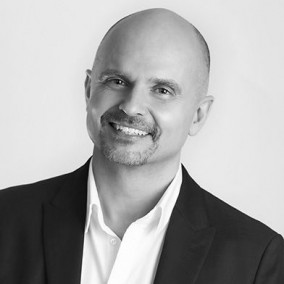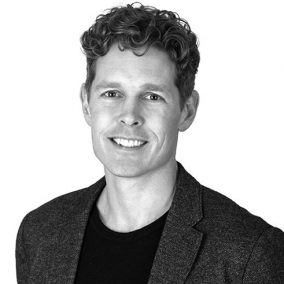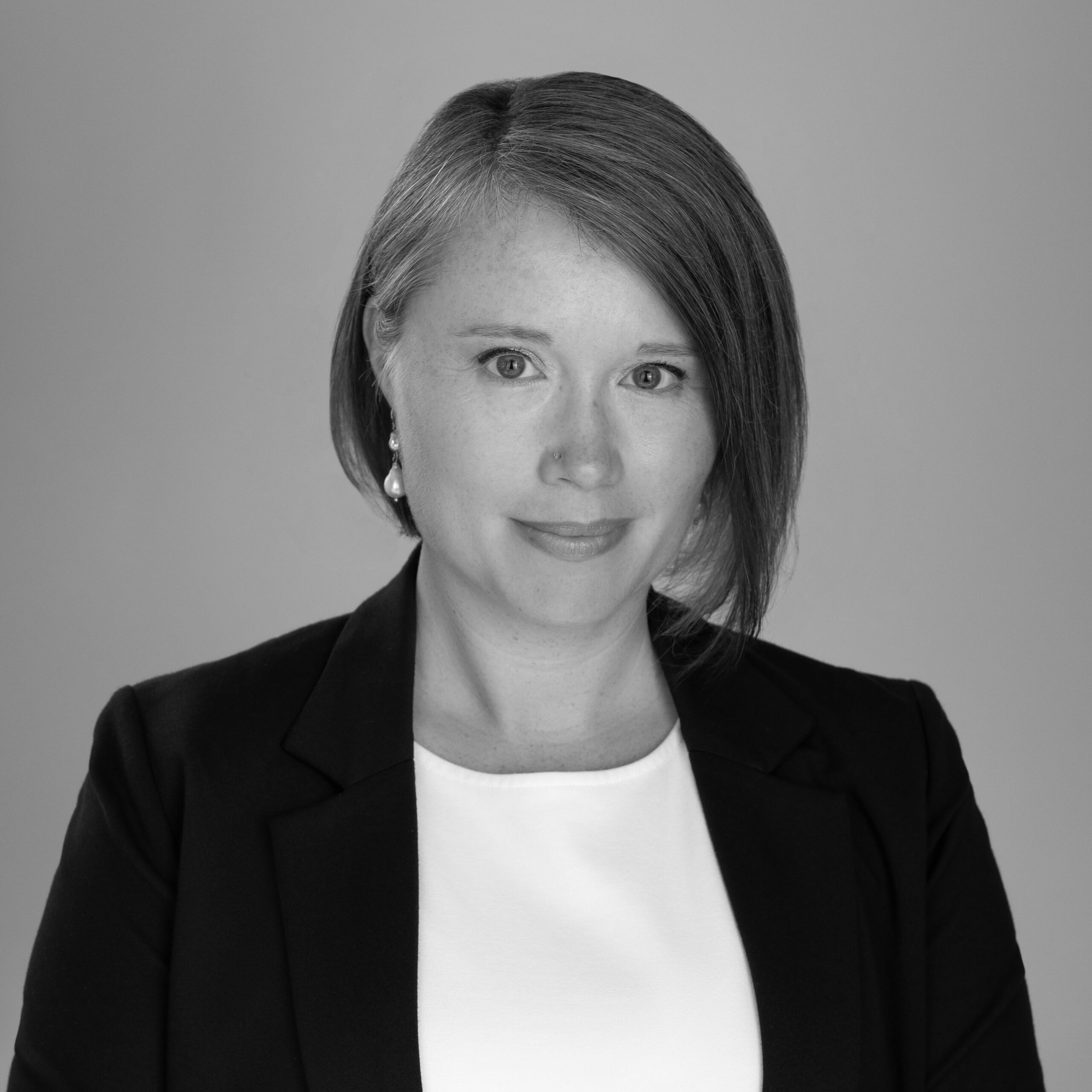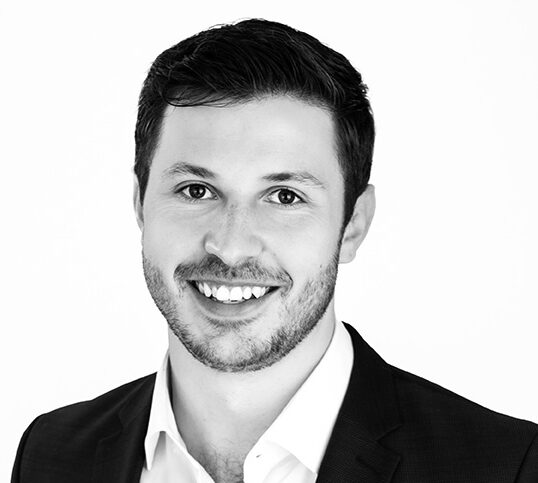Our Team: A Story of Cities

TRENT BERRY, Principal
Trent is a management consultant and economist with 25 years of experience in policy, planning, technology, and infrastructure development. He earned a Bachelor of Science from the University of Saskatchewan and a Masters in Resource Management from Simon Fraser University.
Vancouver, BC
One of Trent’s most prominent and satisfying projects is very close to home. It’s the Neighbourhood Energy Utility he helped develop for False Creek, home of Vancouver’s 2010 Olympic Village. Trent conducted the very first screening of sustainability features in response to Vancouver’s olympic bid commitments. This study established the overall energy concept. He then led the detailed feasibility study and then continued to advise throughout commissioning and initial operation of the system, which captures waste heat from raw sewage. At the time, sewer heat recovery was an entirely new concept for North America, one which many communities are now pursuing. “I was able to support the whole lifecycle of a project from a very high-level idea to a full business case and ownership decision, and through implementation. The project received global attention around the 2010 Olympics, including an article in National Geographic. But I’m constantly reminded of it during regular bike rides past the energy centre, which won an architectural award for its public art features.”
Portland, OR
Trent was a Fellows with the Portland Sustainability Institute (now EcoDistricts), where he worked on advancing neighbourhood-scale water and energy systems. As part of this fellowship, Trent worked with the City of Portland on options for establishing district heating and cooling in several neighbourhoods including North Pearl and South Waterfront. “Though Vancouver and Portland have much in common, it’s interesting to see how small differences in history, environment and law influence the opportunities and constraints for greener urban infrastructure.”
Berlin, Germany
Germany has had a profound influence on Trent’s life and career direction, starting with his year of study there. Germany was Trent’s first exposure to concepts such as the Energiewende (energy transition) and Passivhaus, and he’s watched the significant changes in Germany’s energy infrastructure on his regular visits back. Berlin is one of his favourite cities in the world. He enjoys its optimal mix of urban and green spaces. It’s large enough for a vibrant cultural life and small enough to bike everywhere. From his base in Berlin, Trent spends a lot of time visiting projects and colleagues throughout Europe and the UK. “I learn so much seeing how things work in practice. It’s also easier to get the real story behind projects during intimate visits with people on their home turf. My regular study tours have had a big impact on my practice.”

WILL CLEVELAND, Principal
Will is an economist and financial analyst with experience in utility services, infrastructure projects, and real estate development. He did his undergraduate degree at Georgetown University and his Masters of Science at the London School of Economics.
London, UK
Will earned his Masters of Science in Economics from the London School of Economics. His education got him excited about how innovative policies can reshape cities for the better. And his time in real estate development stoked his desire for hands-on work. “I was drawn to energy and infrastructure consulting, which is right at the intersection of cutting-edge policy and actual projects.”
Vancouver, BC
The UBC project to reclaim heat from the university’s particle accelerator has Will very excited. UBC will be able to reduce greenhouse gas emissions by using the reclaimed energy to heat other buildings. “Reshape has contributed a lot to moving UBC forward with a unique project. We have been involved from study work right through to implementation.”
Chicago, IL
Will lived in the Windy City for years and loved it there. He moved to Chicago right after his undergrad at Georgetown, and it was his first big-city home, even grander in scale than Washington, DC. Inspired by the Chicago architecture, Will started to think about how cities are put together and how they evolve over time. “In a block with buildings from different time periods, you can see all the layers of different eras, different materials and construction technology, different zoning regulations, different priorities, all lined up a row.”

GERARD MACDONALD, Principal
Gerard is a non-practising professional engineer with over 15 years of experience in policy, design, and operations of building energy systems and community energy infrastructure. He has a Bachelor of Mechanical Engineering from the University of Waterloo and a Masters of Clean Energy Engineering from the University of British Columbia. He is passionate about cities, climate issues, as well as baseball and the BC backcountry.
Kobe, Japan
Right out of university, Gerard lived near Kobe. It was there that he had the realization that cities are built, not inherited. Having grown up in the long-established city of Montreal, seeing Kobe built back up as a brand-new city after the catastrophic earthquake in the mid-90s made him realize – cities are built! Those who work on them can shape the way they look, feel, and perform. This city-building awakening, the Japanese ethic of hard work and perseverance, and the culture of seeking both a pragmatic and beautiful solution still resonate with Gerard today as he strives to bring these same values into his consulting practice.
Toronto, ON
Over the past few years of supporting clients on work in Toronto, Gerard has become reacquainted with the city where he lived off-and-on while in co-op placements for university. “The city has changed so much in the last 20 years and there is so much change still happening. We are in the midst of a city-building era in Toronto, and the top end of where the city will go isn’t anywhere in sight. It is such an important centre for Canada, and as it matures into a global city, how that growth happens is important not just for Toronto or Canada, but the world.”
Los Angles, CA
As an avid cyclist and outdoor adventurer, the freeway-filled and sprawling city of LA is an unlikely candidate for a city that has shaped Gerard. But the city’s bravery and persistence to continually create and reinvent itself inspires Gerard. More broadly, it’s California that Gerard has a love affair with. “California is where ideas come from. Whenever I am in there, I ask myself: ‘Why doesn’t everyone live here?’ It’s one of those places where it feels like the future is happening today, for better and worse.” While Gerard has no plans to move away from the BC mountains, he often looks south to the California sunshine for inspiration – just because things are the way they are today, doesn’t mean they need to be that way tomorrow.

SONJA WILSON, Principal
Sonja is a professional mechanical engineer with over ten years of experience in thermal energy systems, including five years of experience in the planning, design and construction of District Energy Systems. In addition, she holds an MSc in Resource Management and Environmental Studies from the University of British Columbia.
Edmonton, AB
Sonja earned her bachelors in Mechanical Engineering at the University of Alberta in 2004. Growing up in Alberta, in the midst of the oil economy, Sonja developed an enduring interest in alternative sources of energy, and sought educational and work experiences that would lead her down the path she is still on today.
Christchurch, New Zealand
After completing her undergraduate program, Sonja moved to Christchurch, New Zealand to begin her engineering career. In her time in New Zealand, Sonja worked on the design of a 5 MW (thermal) wood-fired boiler, and a 1 kW (electric) Stirling engine micro-combined heat and power generator. During this time, Sonja learned a valuable lesson for a junior engineer, “While working on the development of the micro-cogeneration system, I became aware of the influence of non-technical factors on the success or failure of new energy technologies to penetrate the market; I realized success was not simply a matter of meeting the technical challenges.”
Vancouver, BC
Sonja’s return to Canada brought her to Vancouver where she soon started a master’s degree in the Resource Management and Environmental Studies program at UBC. The focus of her master’s thesis was on biomass combined heat and power systems, and she was heavily influenced by the energy policy and structured decision-making courses in the program. After graduating from UBC in 2012, Sonja began her consulting career with Kerr Wood Leidal (KWL), a consulting engineering company with a strong local presence in the District Energy market. During her five years at KWL, Sonja worked on the planning, design and construction of numerous district energy projects, amassing a thorough understanding of the benefits and challenges associated with District Energy. “I view district energy as a powerful tool for decarbonizing cities and the most interesting part about district energy is that it is so contextual with respect to energy needs and low carbon energy options. Although the objectives for many systems are the same, the path to achieving those objectives is almost always different.” In joining Reshape’s team, Sonja combines the strength of her technical background with Reshape’s unique approach to overcoming the non-technical barriers that slow our energy transition.

CONNOR REED, Associate
Connor is an Associate with expertise in building energy performance and simulation. Connor has broad experience consulting on high performance, new construction and deep energy building retrofits. His interest and professional focus is on advancing district scale solutions to facilitate innovative, resilient, and sustainable urban development.
Kingston, ON
Connor spent 6 years in Kingston – a small, historic city on the banks of Lake Ontario. Kingston was where Connor studied during his undergraduate, and also where he started his career after graduation. In Connor’s mind, Kingston is a model for what a small city should strive to be – striking the right balance between community engagement, economic opportunity, walkability, and cultural character. Kingston has strong roots in agriculture and sustainability, and this is where Connor was first introduced to green building practices as a part of his work within the Energy Management Department at Queen’s University.
Paris, France
Connor lived in a suburb of Paris for a semester in high school. Having grown up in a small town in Ontario, this was Connor’s first introduction to living in a bustling and internationally renowned city. Moving to Paris was an eye-opening experience which pushed Connor to appreciate the enormous role that cities play as economic engines for society, and the environmental footprint they bear.
Toronto, ON
Toronto is the city that Connor now calls home. He’s had the opportunity to contribute to many industry-leading projects in Toronto, including zero-carbon, new development and low-carbon district energy systems. There is a palpable sense in Toronto that the communities, infrastructure, and policies that are being developed today will define the city for decades to come and how it’s perceived on a global stage. “Toronto is ground zero for Canada’s decarbonization transition. It’s an exciting to place to work and to lay down roots.”